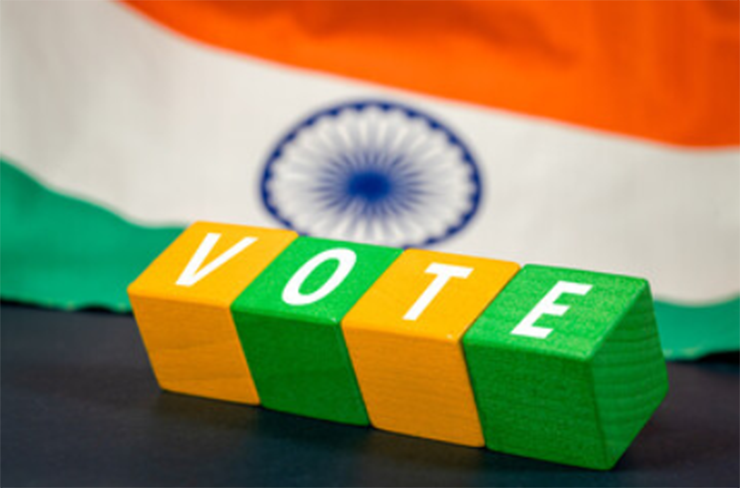
Disinformation Empire: The boom in technology, especially in AI with sophisticated tools such as voice cloning, adaptive imaging, and generative videos, has considerably eased out routine activities while also making them a lot more vulnerable to undesired influences. It is increasingly difficult for a commoner to find flaws in something he is watching and listening to with his own eyes and ears to believe that it is unreal and created purposefully for negative influence. So, one can find celebrities in the most ‘awkward situations’, national leaders making highly controversial statements, and business magnets offering a quick return on seemingly bogus schemes.
With the new technology, the magnitude of the problem has grown in exponential terms. Unfortunately, this negative influencing obsession has been adopted as a specialised tool by some countries like China, aiming to exploit the soft points of their adversaries. China has created an elaborate ecosystem of spoof campaigning coupled with its prowess in cyber warfare. In an October 2022 US National Security Agency report, on ‘China’s Cybersecurity Capabilities’, some major revelations about Chinese state-linked hacking groups were highlighted.
The magnitude of the problem has grown in exponential terms. The negative influencing obsession has been adopted as a tool by some countries like China, which has created an ecosystem of spoof campaigning. The US National Security Agency, in its October 2022 report on ‘China’s Cybersecurity Capabilities’, highlighted some major revelations about Chinese state-linked hacking groups
This disinformation empire is a seamless amalgamation of hi-tech civilian setups like APT 31, BARIUM, and I Soon coupled with much better-organised units within its armed forces like Base 311. I Soon for instance boasted of having capabilities to bypass two-step authentication, a supposedly secure login technique in practice globally. It also identified India – as a ‘key target’ for infiltration. Within the Chinese system, they are considered the most impactful non-combat venture.

Dubious Capabilities
The Chinese strategist has deployed these dubious capabilities during the recently held Taiwanese national elections. China’s Taiwan Affairs Office has been instrumental in serving the targeted content during the period leading to Taiwan’s presidential election. The popular social media platforms in Taiwan such as Line, Dcard and Douyin, quickly saw overwhelming content pushing for a reconciliatory approach towards the mainland. Often addressing them as ‘compatriots’, ‘same people’, and ‘Chinese people don’t fight Chinese’.
The quantum of efforts and money that were poured in by China unambiguously indicates two things; first, the high importance it attaches to influencing national elections, and second, the overarching confidence it has in its technological capabilities to achieve its desired goal. The worrying part is China has been gaining expertise through experiments like the one in Taiwan and possesses a sort of blueprint for the tactics to be employed yet again against its other adversaries!

Driving Factors
The motivational purpose behind such an act is highly important. So, what essentially do China and some of these countries believe that encourages them to resort to dirty tricks? Actually, there are many ‘advantages’ like having a favourable dispensation, discrediting an unfavourable national leader, and engineering a divided mandate thus weakening the decision-making capacity of the adversary. The elections for a country, as significant as the US, India and the European Union are as much about domestic challenges as they are about the country’s geopolitical direction.
Analysis of the test cases of the 2016 US election, which has scores of occasions of active external influences, offers a valuable perspective. The Mueller inquiry, which was set up with a mandate to ‘Investigate into possible Russian interference in the 2016 United States elections’, brought out some chilling facts. As per the inquiry report, clear traces of ‘external interferences’ were identified
Analysis of the test cases of the 2016 US election, which has scores of occasions of active external influences, offers a valuable perspective. The Mueller inquiry which was set up with a mandate to ‘Investigate into possible Russian interference in the 2016 United States elections’ brought out some chilling facts. As per the inquiry report, clear traces of ‘external interferences’ were identified. Hostile activities such as hacking into election systems to modify outcomes, or stealing information like Hilary Clinton’s email to influence public opinion. The report however fell short of suggesting ways out. Some suggest that even this was influenced by external considerations rather than domestic requirements.

Inexplicable Lethargy
There is also an inexplicable lethargy seen among the world’s leading democracies like the US and India to act and plug their susceptibilities. Looking at India which is contested in every possible domain by its prime adversaries, the discussions on external interference during its ongoing Parliamentary election are still muted. There isn’t any elaborate counteraction plan, or if there is one, at least none is known. Instead of closing their eyes to disturbing realities, democracies need to call out this threat. For others, it’s just another form of warfare; a much more subtle, much cheaper and probably much more impactful.
India stepping into its almost three-month-long election quarter is going to be targeted by its adversaries, whether it acknowledges it or not. It could be China, Pakistan, Turkey, or anyone else, names are less important. Laying down exact responsibility will not be feasible due to the multilayered cover, this has been the prime reason why even the United States was very cautious to blame Russia
India stepping into its almost three-month-long election quarter is going to be targeted by its adversaries, irrespective of whether it acknowledges it or not. Whether it will be China, Pakistan, Turkey or anyone else names are less important. The threat is more pronounced in the digital domain. Laying down exact responsibility will not be feasible due to the multilayered cover, this has been the prime reason why even the US was very cautious to blame Russia.

Counteract or Else!
India must now quickly act, it has some reasonable capabilities in place to mount safeguards. It must make it mandatory for all political parties to submit their digital campaign material to a central agency like the National Informatics Centre (NIC), which will be the sole agency to release it post-digital watermarking or placing digital holograms approving the authenticity. All media platforms must scrutinise the digital campaign materials for NIC authentication before releasing them. The Common Public must be educated through social campaigns only to believe the authenticated information and report any suspect full campaigning.
Major social media organisations will need to be onboarded as important stakeholders to allow only externally verified accounts to make political comments on some other country during the electioneering period while blocking all politically motivated messaging from unverified ones. This will give dual benefits of allowing freedom of speech and preventing bots from overwhelming the agenda. There can be many more workable means, provided the country decides to fight this menace and defeat the overarching ambitions of its adversaries.
India must now quickly act, it has some reasonable capabilities in place to mount safeguards. It must make it mandatory for all political parties to submit their digital campaign material to a central agency like the National Informatics Centre (NIC) for approval. The public must be educated through social campaigns to believe only the authenticated information and report any suspect full campaigning
Passive means and countermeasures are valuable but demand a very large pooling of resources and efforts. This makes for an apt need to create some red lines in the conduct of affairs of national significance such as elections. It would be thus in absolute order to forewarn ‘all those’ to whom it concerns that any interference in the conduct of national elections would trigger an auto response exacting a price to be paid for same. A collective response is well within capability and will hit exactly where it hurts.
The matter is no longer an optional choice for individual nations to decide about their willingness or otherwise. If they choose not to act now, there won’t be too distant a time when they start feeling edged out. The same adversaries would continue harnessing this enormous negative power to trample down smaller countries with deep significance. We have witnessed it in Solomon Island in the Pacific, we have seen it in the Maldives in the Indian Ocean, all strategically sensitive nations. The rising influence of China in these countries is being routed through perfect democratic means, their national elections. Major democracies have the responsibility not only to themselves but to collaborate and safeguard these smaller democracies from being galloped by senseless manipulation. If not acted in time there won’t be much left for democracies to act anyway!
-The writer has varied experience in the security paradigm and is a keen follower of global geopolitics. His work has been regularly featured in national publications. Visit newsanalytics.in to access more articles from the author.















